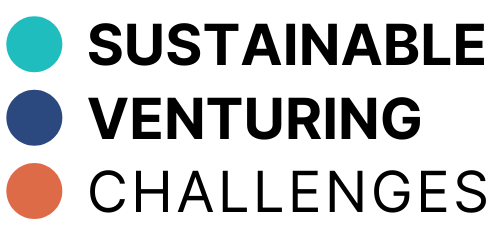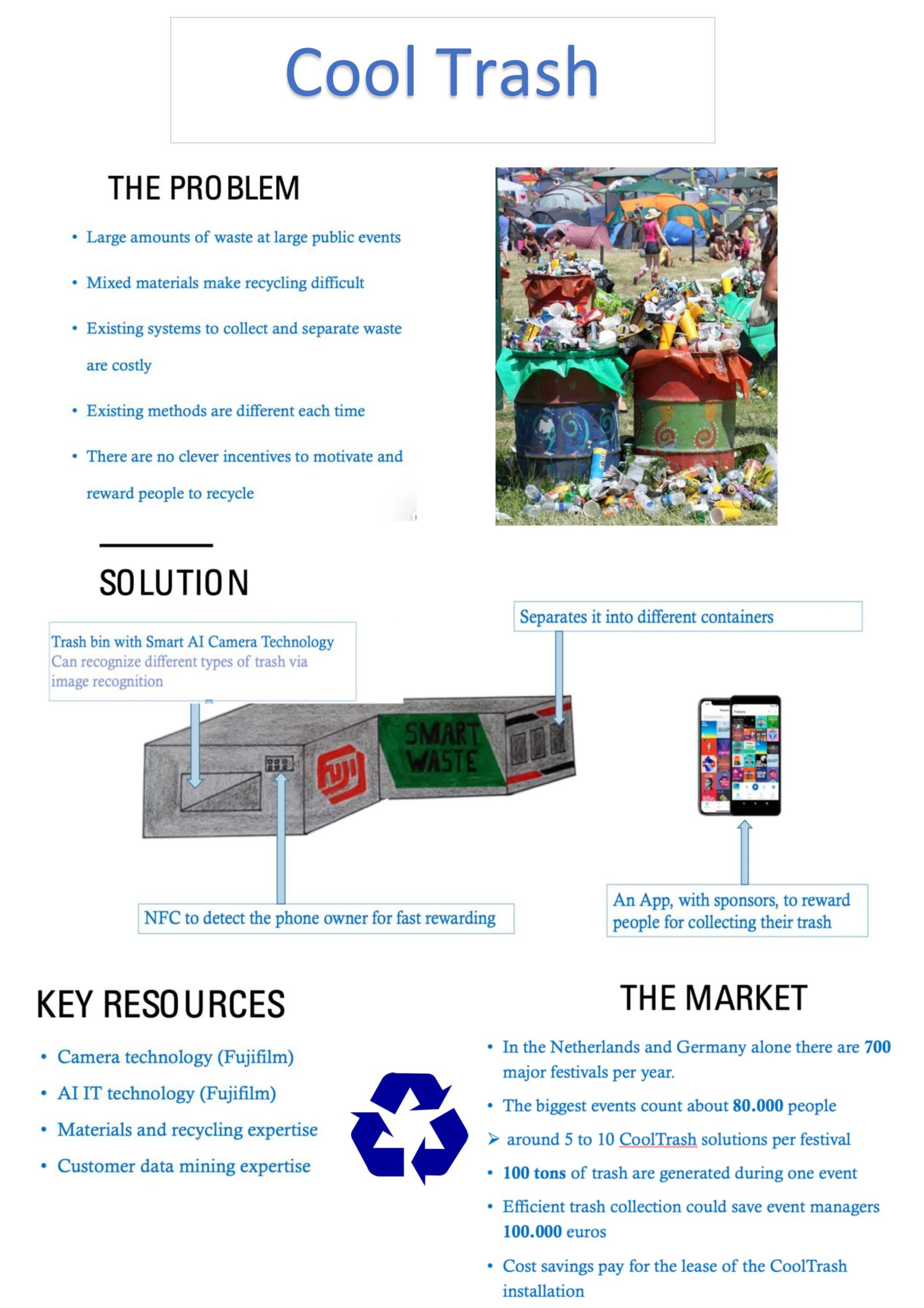"We received the opportunity to work directly with experienced industry professionals who are leaders in their fields": Merel Laura de Niet
Merel Laura de Niet is currently completing her Master’s studies in Cognitive Neuropsychology at Vrije Universiteit Amsterdam. During her Bachelor’s studies in Cognitive Neuroscience at Tilburg University, she participated in the Fujifilm Future Challenge which was initiated by Fujifilm’s open innovation hub looking for new sustainable business models with Fujifilm’s technologies. We spoke to Merel Laura de Niet to find out more about her experience of taking part in the challenge.
Months
Student Teams
Company
How did you find out about the challenge and why did you decide to take part?
Merel Laura de Niet: Our university had made an official announcement saying they were looking for students to participate in the Fujifilm Future Challenge as a university team. I was interested in taking part, mostly because I saw that Fujifilm also works in the medical field and develops neuro-regenerative technologies. With Neuroscience as my major, this sparked my interest. I had some extra-time on my hands to participate and also wanted to get a glimpse into the business world. Besides, this seemed like a suitable and at the same time fun experience to add to my CV.
What was the task of the challenge and what did you specifically do there?
Merel Laura de Niet: Fujifilm’s Open Innovation Hub gave us the challenge to develop an innovative sustainable idea related to the field of either healthcare, energy, water or membranes – so actually a very broad challenge! We were asked to look at the technologies Fujifilm has developed and come up with new, viable applications of these technologies that have potential to contribute to a better world. The Innovation Hub managers invited us to really think outside the box. They stressed that they were not looking for products and solutions that already exist, but something that had never been thought of before.
Our first idea was a water filtering technology which we dropped quickly as we realised it wasn’t innovative enough. Eventually, we came up with “Cool Trash”, a trash bin system featuring smart AI camera technology. Given the large amounts of waste produced at public events such as festivals, our solution aimed at making it easier to recycle mixed materials. The smart trash bin we developed can recognise different types of trash via image recognition technology, eventually separating it into different containers. To motivate users to use the smart bin, we came up with a reward system that would allow users to scan their phones and eventually receive benefits or discounts for sustainable companies via an app. We saw this as a win-win for everyone – the rate of recycled trash would increase, while people benefit from discounts and sustainable brands receive more customers.
The Cool Trash solution Merel and Tim developed as a team in the Fujifulm Future Challenge © Merel Laura de Niet
What was your experience like? What was particularly fun and what was particularly challenging?
Merel Laura de Niet: Overall, I had a great experience. What was especially fun was preparing the pitch of our solution to the managers at Fujifilm. We were actually asked to prepare a video pitch instead of a classical pitch. I really enjoyed the process of producing the video. Compared to the usual presentations you give at university, this was definitely a more interactive and creative way of communicating our solution and its innovative character.
I also appreciated the support we received from the academic staff. When we asked to schedule sessions to receive feedback on our idea, they were always really quick to answer and flexible with time. That was really nice, knowing we could reach out to them at anytime to discuss our ideas and receive comments that challenged us to think further.
The team work turned out to be a little challenging at first, as two of my team members left in the middle of the challenge. While this made me a little unsure as to whether to continue myself, my team member Tim and I decided we definitely wanted to carry on, despite being a two-people team. Working together turned out to be really fun. Tim came from a totally different field than I did, he was majoring in Business IT. This definitely helped us in the ideation process, as we brought together different ideas and perspectives. For instance, he came up with the idea of integrating the NFC technology into the trash bin solution.
“Initially, it did take us some time to come up with a good solution. But I realised that the challenge encouraged us to think differently. We had to define the societal problem we wanted to solve first and then narrow down our ideas to the best solution. That is, participating in the challenge definitely pushed my skills in creativity and innovative thinking.” – Merel Laura de Niet
What I perceived as most challenging was the fact that it was a very broad challenge. Hence, the start of the challenge was the most demanding phase. While we did receive a lot of information upfront, there were so many possible ideas to follow up on and it was really hard to come up with that one great and innovative idea. While it did take us some time initially, I realised it encouraged us to think differently, defining the societal problem we wanted to solve first and narrowing down our ideas to the best solution. That is, participating in the challenge definitely pushed my skills in creativity and innovative thinking. This was also encouraged by Fujifilm management staff who really wanted us to channel all our creativity.
Was there a special highlight for you?
Merel Laura de Niet: What I actually enjoyed most was the process of creating the video for our final pitch to Fujifilm. While it had proved quite challenging to come up with the idea itself, it really only took shape when developing the video. I think this is due to the fact that producing the video really made you rethink the solution you were proposing and how to communicate the idea effectively for the Fujifilm managers and academic staff to grasp.
Whom would you recommend to take part in this kind of challenge and why?
Merel Laura de Niet: Would I recommend taking part in this kind of challenge? Yes, definitely! Why? Because it is becoming more and more important to think in terms of the positive impact you create for society and the planet. I’d direct my recommendation especially to students who want to be challenged to think of really smart solutions to modern problems. Students can gain a lot of knowledge from the academic staff who are at the forefront of innovative learning for sustainability. At the same time, they receive the opportunity to work directly with experienced industry professionals who are leaders in their fields.
And I think becoming a corporate partner to a challenge could be beneficial for businesses which aren’t quite there yet in terms of sustainability, but are open to development and innovation. There are a lot of young people out there who want to contribute their innovative ideas to make this world a better place!

powered by ScaleUp4Sustainability
Carl von Ossietzky University of Oldenburg
Department of Business Administration, Economics and Law
Adj. Prof. Innovation Management and Sustainability
Ammerländer Heerstr. 114-118, 26129 Oldenburg, Germany
Legal notice and data protection

The platform was created as part of the ScaleUp4Sustainability project. ScaleUp4Sustainability (Project Reference: 601150-EPP-1-2018-1-DE-EPPKA2-KA) is funded by the Erasmus+/Knowledge Alliance Programme of the European Union.


